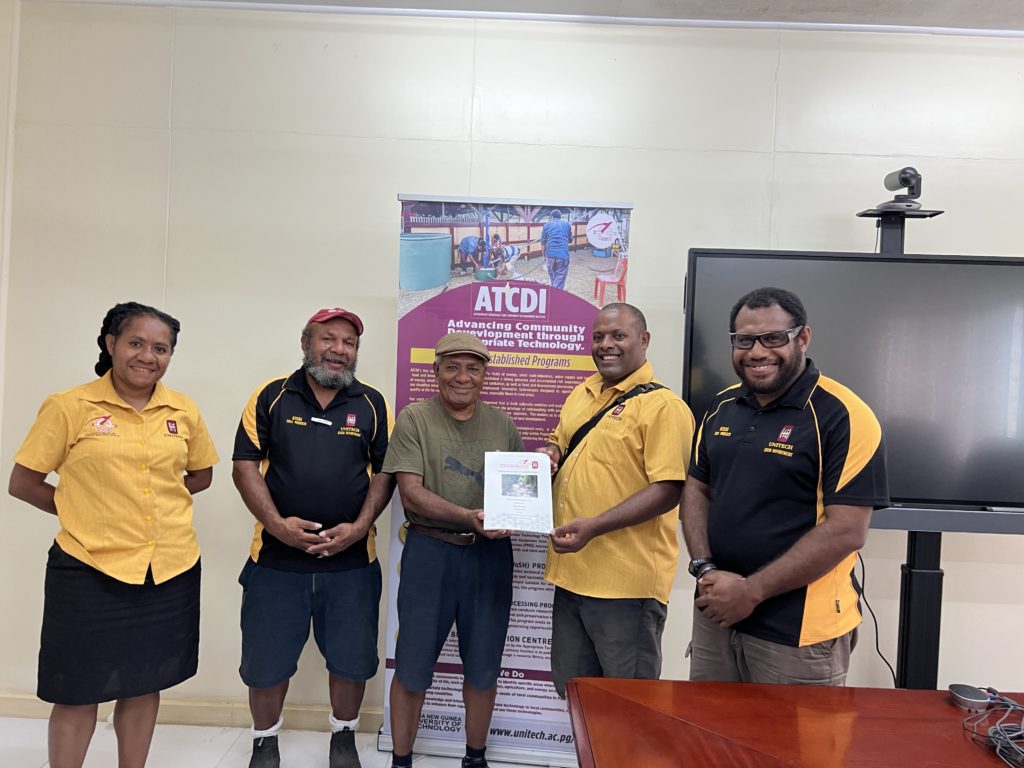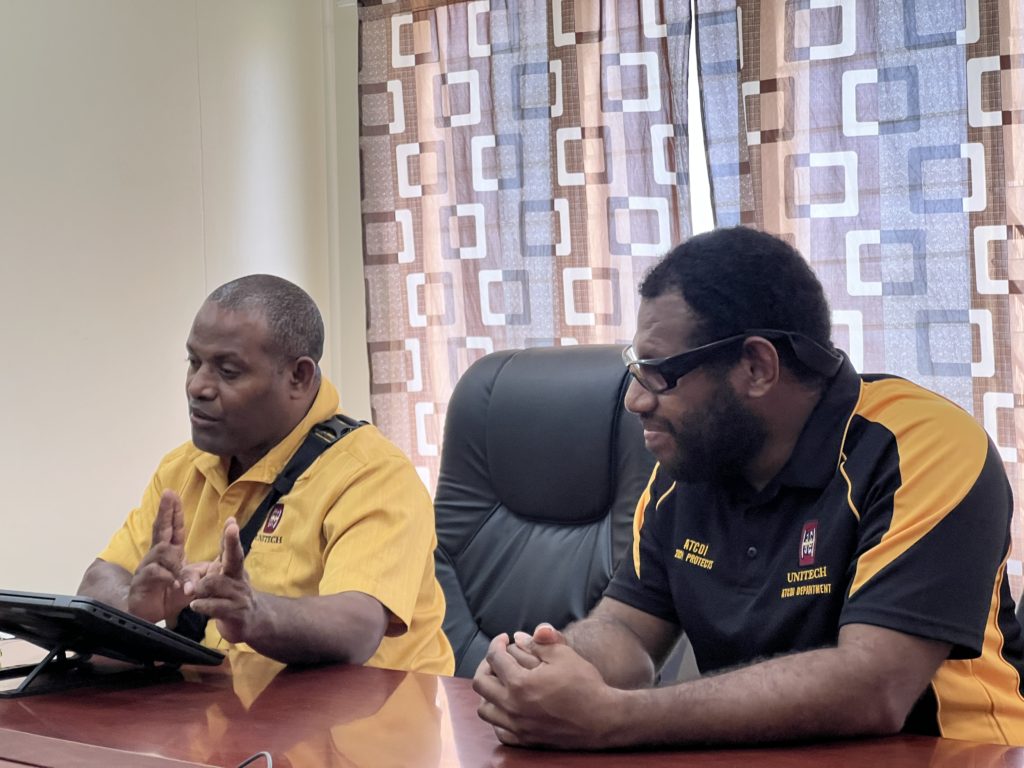ATCDI COMPLETES FEASIBILITY STUDY FOR WAKOP MICRO HYDRO PROJECT
The Appropriate Technology and Community Development Institute (ATCDI) at the Papua New Guinea University of Technology recently conducted a feasibility study to identify possible power sources for an 8-kilowatt (kW) micro hydro project for the Wakop community in Ward 17 of the Salamaua Rural LLG.
The report which was presented last Wednesday to Ward Councillor Mathias Geoctau. The report confirmed that a nearby stream called Legami can generate the necessary power to meet the community’s essential needs.
Councilor Geoctau praised the ATCDI team’s work, saying the findings give hope for the future. He highlighting the project’s potential to provide reliable power for essential services like healthcare, water supply, and education.
“It will improve the living standard of the people and also serve as motivation for the kids back in the community to pursue education further and bring back to their community just like ATCDI did”.

ATCDI was established in 1978, and focuses on practical solutions to improve rural communities. The Legami Stream micro hydro project is part of ATCDI’s commitment to providing clean and reliable energy for underserved areas. The proposed micro hydro system is a Run-of-River (RoR) type and plans to include a Pelton turbine, coupled to an alternator producing 8 kW of power for load centers and equipment such as the Wakop Aid Post, a small workshop, a primary school and a water pump to provide water for the community.
Another river was also surveyed by ATCDI and has a potential to produce more than 8-MW, which would be more than enough to provide for the other two communities (including Wakop) in Ward 17: Bumato and Buasi.
ATCDI Director Sona Anegi said a feasibility report for that will also be prepared and given to the councilor before March..
“We are expecting the report to be ready by early next month for handover.”

These projects support Papua New Guinea’s goal of achieving 70% rural electrification by 2030.
The Legami Stream Micro-Hydro Project, which is estimated to cost more than PGK 800,000.00, is now awaiting funding for implementation. Once operational, it will transform daily life for Wakop residents, providing clean, consistent energy for essential services.
Mr. Anegi also emphasized on the institute’s reliance on various government agencies, NGOs, and international organizations for funding to implement such community impact projects.
The presentation of the report was witnessed by ATCDI officials, and Councilor Geoctau expressed eagerness to move forward with the project’s next steps.
He thanked the ATCDI officials for their resilience and commitment in completing the feasibility report for his village.
The community will be involved in the construction and maintenance of the system, ensuring ownership and sustainability.
